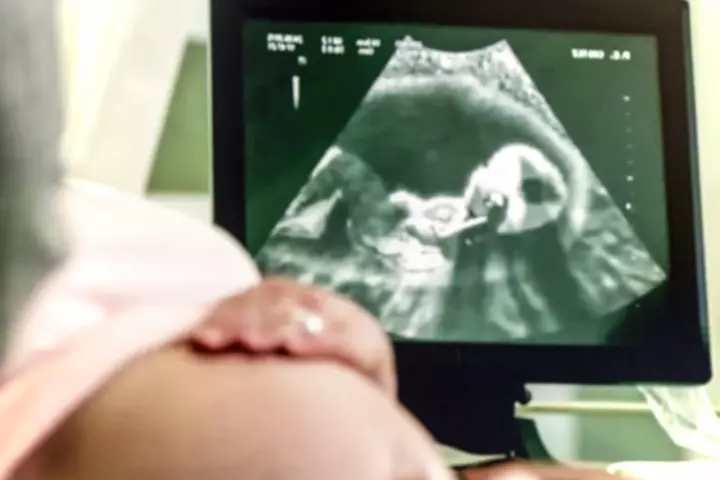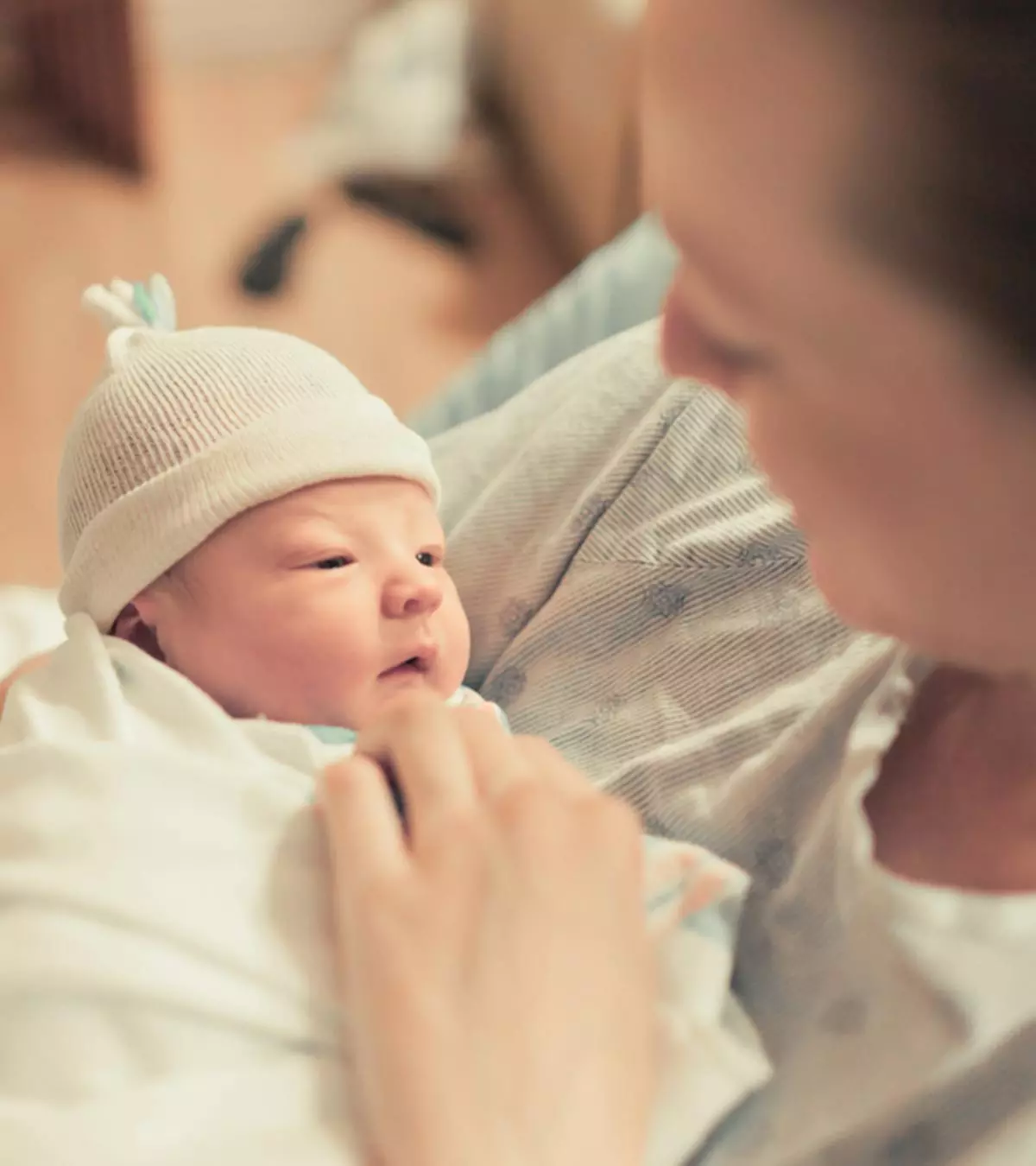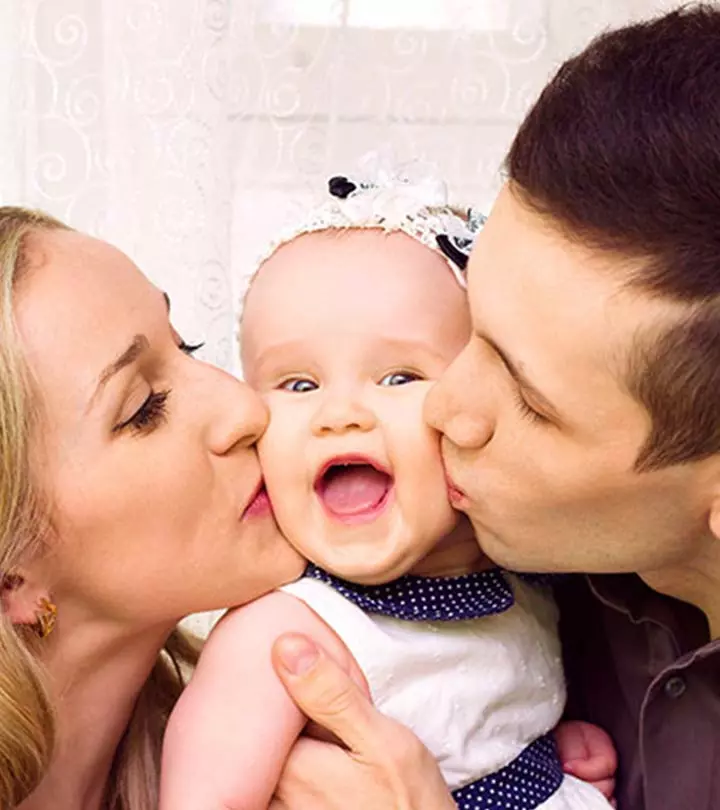

Image: Shutterstock
One nightmare that any soon-to-be mother dreads are unexpected bleeding episodes during pregnancy. While her fears may not be completely misplaced, it is also true that not every kind of bleeding impacts pregnancy. And not all bleeding episodes result in the loss of the baby. Here we discuss a few common and rare types of bleeding that may occur during pregnancy. Read further to know more about them:

1. Bleeding Due To Implantation
The most common type of bleeding, it typically occurs during the first trimester. When the fertilized egg burrows into the uterus, it results in implantation bleeding. This is usually characterized by dark brown or pink spots. If you’ve missed your periods, had a positive pregnancy test result, and still experienced some spotting – then chances are that you are very much pregnant. However, in rare cases, if the bleeding is heavy, a visit to the doctor is necessary.
2. Pre-term Labor
Image: Shutterstock
Also known as premature labor, this is when a pregnant woman’s body gets ready to deliver much before (almost three weeks) the expected due date. It can be caused due to various factors including unhealthy lifestyle (smoking, drinking, obesity), insufficient prenatal care, or underlying health issues. One of the signs of pre-term labor is light vaginal bleeding accompanied by, but not limited to, headaches; contractions that occur every 10 minutes; period-like cramps; increase in vaginal discharge, etc. However, the good news is that pre-term labors can now be prevented with the right medical intervention.
3. Cervical Polyps Or Infections
Cervical or vaginal infections caused by STDs or cervical polyps can also cause some vaginal bleeding during pregnancy. If you experience dark blood spotting or bleeding generally after two months, it is better to seek an appointment with your doctor. Polyps can be removed with a simple surgery and rarely cause miscarriage.
4. Spontaneous Abortion
Image: Shutterstock
Also called a miscarriage, it is usually characterized by heavy bleeding with a bright blood. A miscarriage cannot be pre-diagnosed or prevented. The most common cause of miscarriage is that many women are not aware that they are pregnant, especially for the first time. A complete bed rest is advised in such cases. However, a woman can get pregnant again, usually within 2 to 3 months. This is the time the uterus requires to clear itself of any remnants of the previous pregnancy.
5. Placenta Previa
This is the most common cause of bleeding during the third trimester. Placenta previa is a condition where the placenta attaches itself to the uterus, or partially or completely covers the cervix. Due to this, a woman may experience heavy bleeding before delivery. A C-section is generally performed in such cases to reduce any risks during delivery.
6. Placental Abruption
Image: Shutterstock
In some cases, the placenta may detach from the uterus resulting in blood collection between the uterus and the placenta. If not detected early, it may result in the mother hemorrhaging (heavy bleeding) and loss of the baby due to lack of oxygen. However, this is a rare condition, affecting about 1% of pregnancies.
7. Uterine Rupture
If the uterus muscles are weak due to any previous condition, like a badly executed C-section, the uterus may rupture under the baby’s growing weight. An emergency C-section is performed in such situations to save the mother and the baby. To avoid such conditions, it is generally advised to wait out 3 to 4 years before planning another baby following a C-section. A thorough analysis by your doctor is the best bet before you go ahead with family expansion.
There are other rare conditions, apart from the ones mentioned above, that can cause bleeding during pregnancy. They are the ectopic pregnancy (where the embryo implants outside the uterus) and molar pregnancy (fertilized egg becomes a mole instead of a fetus). Both these conditions require termination of pregnancy as they are life-threatening to the mother. However, as mentioned earlier, these are rare conditions.
Image: Shutterstock
Now that you know the various reasons for bleeding during pregnancy, we hope that it takes some of the pressure off your mind. If you still have any persisting doubts, make sure you visit your doctor to clarify them at the earliest. Have a healthy and a happy pregnancy!
Community Experiences
Join the conversation and become a part of our nurturing community! Share your stories, experiences, and insights to connect with fellow parents.

















